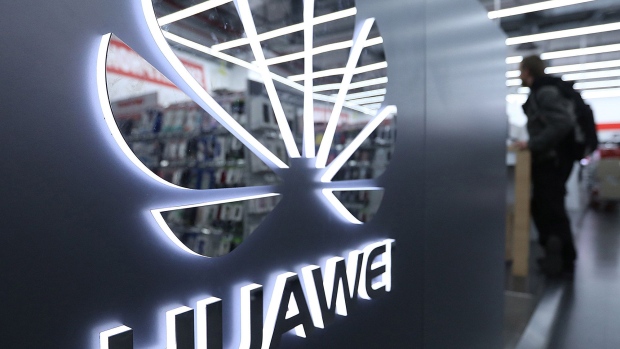Sep 23, 2020
Merkel Resists Full Ban on Huawei, Making Germany an Outlier
, Bloomberg News

(Bloomberg) -- Chancellor Angela Merkel is holding the line against security hawks in Berlin to prevent a formal ban on China’s Huawei Technologies Co. as negotiators finalize the rules for keeping Germany’s fifth-generation wireless networks secure.
The draft regulations would tighten the government’s scrutiny over equipment vendors, giving key cabinet members more room to flag security risks to Germany’s data, according to three people familiar with the discussions.
While the regulations reflect international concerns about the Chinese supplier, the chancellor has refused to compromise on her core position that Germany mustn’t single out Huawei with a targeted ban. Although the rules could still change, the measures on their own aren’t likely to amount to a de facto ban on Huawei by making the security demands too onerous, the people said.
The measures aren’t intended either to work as a de facto ban by making it too onerous or risky for telecoms companies to use Huawei kit, the people said.
That will leave Germany with looser rules than the U.K., which has imposed a full ban, and France, where President Emmanuel Macron’s government has devised rules making it riskier for operators to use Huawei 5G kit, without banning it outright.
Read More: How Huawei Landed at the Center of Global Tech Tussle
Signs of a gap between Germany and France are emerging days before European leaders meet in Brussels to discuss 5G security and their broader industrial strategy. Charles Michel, president of the EU leaders’ council, is trying to forge a consistent approach to cybersecurity across the bloc, according to draft summit conclusions seen by Bloomberg.
“The European Council underlines that potential 5G suppliers need to be assessed on the basis of common objective criteria,” the draft says.
The two-day summit has been pushed back until the end of next week because Michel is quarantining after contact with the coronavirus.
Merkel has maintained a conciliatory approach to China despite U.S. President Donald Trump’s efforts to stir up opposition to Beijing and his pressure on EU governments to keep Huawei out of their data networks. The German chancellor reinforced that position after a tense Sept. 14 video conference between EU leaders and President Xi Jinping.
“The number of problems have increased substantially in certain areas, there’s no question about that,” Merkel told reporters after the meeting. “On the other hand, you have to keep trying to find solutions, even if it’s a millimeter at a time.”
Read More: U.S. Announces New Curbs on Huawei Access to U.S. Technology
Huawei has become a lightning rod for geopolitical tensions with China. In addition to pressure from the U.S., Merkel has faced resistance from German intelligence agencies, who say that the company’s ties to the Chinese communist party pose a risk to information security.
A White House ban on companies providing American technology to Huawei came into effect last week, cutting off the foreign-made software and components that are key to powering its 5G base stations. The company has “sufficient” inventory to keep its operations afloat, Guo Ping, Huawei’s rotating chairman, told reporters in Shanghai on Wednesday.
The company has consistently denied that its 5G components pose any risk -- and the Chinese government has warned against unfair treatment, even threatening retaliation should the company be shut out.
The new German rules, part of a sprawling IT security law, create an option for senior cabinet members to raise objections based on political risk before Huawei components enter German networks, officials said.
That’s a tougher regime than in earlier drafts, which stipulated only a technical assessment of a vendor’s “trustworthiness” before it received certification from German regulators.
The chancellor already quelled one rebellion in her Christian Democratic-led bloc in February, when a hardline faction pushed for tougher restrictions on Huawei. Since then work on the legislation has been bogged down by disagreements between the ministries on how tough to be on the Chinese. The Foreign Ministry is still upholding some resistance to Merkel, one of the officials said.
Once it’s been agreed by the cabinet, the legislation will still have to be approved by the Bundestag, Germany’s lower house. With the assembly facing a packed schedule, Merkel’s cabinet will need to approve the draft soon if it’s to meet a goal to see the rules implemented by the end of the year.
(Updates with comment from Huawei chairman in 12th paragraph)
©2020 Bloomberg L.P.





